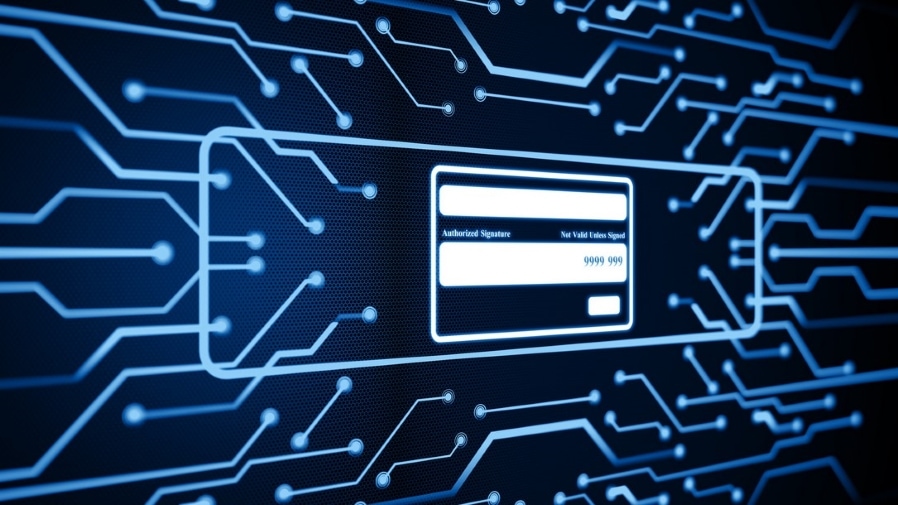Digital Wallets vs Traditional Payment Methods: Which Offers Better Security?

Digital Wallets vs Traditional Payments: With the ever-evolving world of digital technology, it’s no surprise that traditional payment methods are facing competition from their digital counterparts. Digital wallets offer a quick and secure way to pay for goods, but how do they stack up against more established forms of payment?
As our lives become increasingly connected online, there’s an increasing need for reliable and secure payment systems. Whether you’re shopping in your local store or sending money around the world, you want to be sure your payments are safe – after all, nobody wants to worry about identity theft or fraud.
So what options have we got when it comes to making payments securely? Let’s take a closer look at digital wallets vs traditional payment methods – who offers better security?
On this page:
Understanding Digital Wallets
Digital wallets are the new way to pay and offer a secure, easy-to-use alternative to traditional payment methods.
With digital wallets, you simply link your bank account or card details so that your money is accessible wherever you go.
You don’t need to carry around cash or worry about losing it – all you need is an internet connection and your digital wallet, which makes security much simpler.
And because of the encryption technology used by digital wallet providers, your sensitive financial information stays safe from hackers.
So if you’re looking for a more secure way to manage your finances, then consider signing up for a digital wallet today!
Exploring Traditional Payment Options
As we’ve seen, digital wallets offer an impressive level of security and flexibility. But traditional payment options are still widely used, and they come with their own unique advantages.
Let’s take a look at what makes them attractive to many people:
- Convenience – Traditional payments can be made quickly, without the need for additional downloads or accounts.
- Familiarity – Many customers feel comfortable using methods that they’ve used in the past.
- Easier Troubleshooting– If something goes wrong during a traditional transaction, it is often easier to figure out where the problem lies than if you were dealing with a digital wallet.
- Acceptance – Not all merchants accept digital wallets yet, so traditional payment methods may be necessary to make some purchases.
- Fraud Protection– Traditional credit cards usually come with more robust fraud protection measures than those offered by digital wallets.
Traditional payment systems have been honed over decades of use, helping consumers make quick and secure transactions when needed. With such reliability on their side, these methods will continue to remain popular among many users for years to come.
Comparing Security Features
As we all know, security is a major priority when it comes to our finances.
The convenience and ease of access that digital wallets offer can be incredibly appealing – but with this technology come risks.
In order to better understand the relative levels of security offered by digital wallets versus traditional payment methods, let’s take a closer look at their respective features.
From encryption protocols to fraud detection capabilities, both have something unique to bring to the table – so how do they stack up?
Analyzing Risks and Benefits
Moving on from the security features of digital wallets and traditional payment methods, let’s analyze their risks and benefits.
Digital wallets offer convenience with fast online payments that are secure thanks to encryption techniques. On the other hand, traditional payment methods such as cash or cheques can be cumbersome and more prone to theft while carrying them around.
Here is a list of pros and cons for both:
- Digital Wallets – Pros: Easy to use; Secure; Quick transactions – Cons: Potential technical issues, Requires internet connection
- Traditional Payment Methods – Pros: No need for internet access; More familiar option; Physical form of money – Cons: Not as secure as digital wallet options; Prone to theft & lost items
Compared to digital wallets, traditional payment methods may not be optimal in terms of security. However, they do have advantages when it comes to accessibility since no internet connection is needed.
Weighing these against each other should give you an idea which one works best for your needs. Ultimately, it boils down to personal preference and availability of services offered by either method.
Making an Informed Decision
When it comes to your financial security, it’s essential to make an informed decision.
Whether you’re looking for digital wallets or traditional payment methods, understanding the advantages and disadvantages of both is key in making a safe and secure choice.
With digital wallets, convenience can be top-notch as long as you know where your information is stored safely and securely.
On the other hand, with traditional payment methods such as cash or checks there’s less risk of having your personal data exposed.
It’s important to weigh the pros and cons when deciding which method works best for you.
Ultimately, no matter what option you choose, taking measures like regularly checking bank statements or monitoring credit reports are great ways to keep tabs on your finances and ensure that all transactions have been properly handled.
Conclusion
In conclusion, when it comes to security features, both digital wallets and traditional payment options have their pros and cons.
Digital wallets provide convenience as well as enhanced data protection, but they can be vulnerable to hacking and malware attacks.
Traditional methods like cash or credit cards also offer secure transactions, but may not give you the same level of control over your financial information.
Ultimately, it’s up to each individual person to weigh the risks and benefits of using either option and make an informed decision about which one works best for them.

